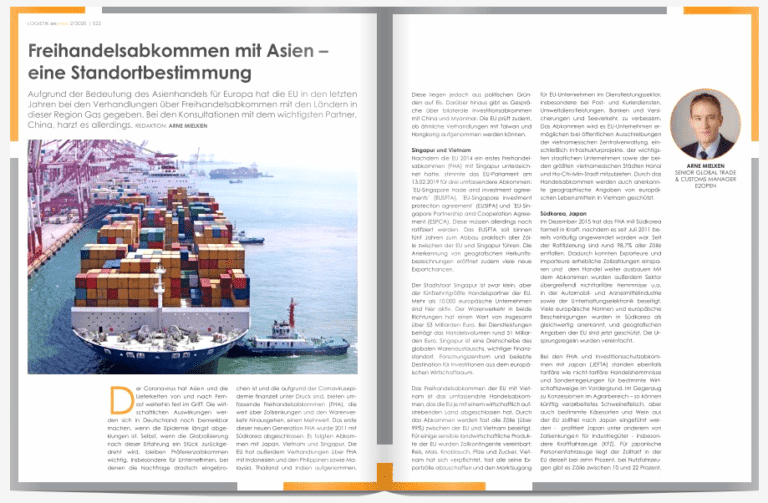Stuck like glue
Black Friday hit the UK with a tumultuous bang back in 2014. But now it looks like it’s here to stay. Alexandra Leonards takes an in-depth look at the ever-transforming shopping event, and the ways in which retailers are approaching its new challenges.
Crashing headfirst into the market like a mad bull in a china shop, Black Friday made its grand (and somewhat disastrous) entrance into the UK only two years ago. But retailers have since dusted themselves off, and it appears (to the dislike of many plugging away behind the scenes), the American import is staying indefinitely.
And very quickly since its original introduction into the UK market, Black Friday has transformed from a day of promotions into a ‘cyber weekend’, and then into a week or even ten days of slashed prices. No longer exclusive to selling off old or redundant goods, the period now offers discounts on all manner of goods.
Needless to say, last year Black Friday saw a significant rise in online sales. An increase of 12.2 per cent (total sales of £1.23 billion) compared to 2015 demonstrates this substantial growth. But, according to Interactive Media in Retail Group (IMRG), each of the four days leading up to Black Friday saw sales increase by between 23.4 and 33.7 per cent compared to the previous year. And during that full week (Monday 21st to Monday 28th November) around £6.45 billion was spent online. The huge sales growth across the longer period demonstrates the changing nature of the shopping event.
James Opie, managing director of IMRG, says that over the last few years Black Friday has consistently shown an impressive ability to shift in both size and scale. “In 2014 the volume of orders exceeded forecasts by over 30 per cent, in 2015 we had empty shops and this year it seems to have become a genuinely extended period of heightened sales activity – taking place over a week (and more in some cases), which is not entirely dissimilar to the way that the Christmas peak used to be online before Black Friday disrupted the established pattern in 2014,” he says.
But the extension has brought new challenges to the table. Retailers now have to plan for ever-increasing and intensifying trade periods which last weeks or even months. “This is challenging as they [retailers] have to be at the top of their game for a longer time frame, meaning retailers must be prepared to run a marathon rather than a sprint,” says Niklas Hedin, CEO of Centiro, the logistics software company.
Jason Shorrock, vice president of retail strategy (EMEA) at JDA, says that retailers have grabbed the opportunity for increased sales and extended offers with both hands.
“Amazon had daily offers lasting almost three weeks, while Argos enjoyed 13 days of discounted sales,” he says. “We are also seeing on-going shifts in how and when customers are shopping – Cyber Monday has grown in importance this year and a rebalance back to the store after the huge shift to online in 2015.”
Eric Carter, solutions architect at Indigo Software, says that having promotions running over a longer period is a great thing for retailers, some of whom have made these changes based on bitter past experiences.
Collapse
“They get a chance to spread the operational load and flex their supply chains a bit more rather than collapse under the strain of a single day,” says Carter. “From personal experience, the service levels provided are a lot better too, with goods ordered coming much more quickly.”
According to Kiel Harkness, UPS’ marketing director (UK, Ireland and Nordic Countries), the reward for retailers around Black Friday is substantial – especially with its newfound extension. “…both large and small can take advantage of [it],” he says.
But retailers must now ensure they are well prepared for heavier activity across all of their channels.
“While Black Friday provides a good opportunity to increase sales volumes dramatically and gain new customers, it is vital that logistics services match up with this extended period of shopping, and that all planning is in place earlier on in the calendar year and for the necessary period of time,” says Harkness. “Therefore, deliveries have never been more important in the run up to the Christmas period.”
So choosing to embrace these deals and promotions is quite a commitment.
“Those who do best during the festive period are those supported by robust planning and intelligent fulfilment execution; this combined with an ultra-responsive and agile supply chain will set retailers on the road to success,” he says.
Jon Walkington, head of real-time retail (UK & Europe) at Apex Supply Chain Technologies, has noticed that consumers are still avoiding shopping centres for the convenience of shopping online and avoiding queues in-store.
“Online spending has increased significantly this year as well as consumers browsing and buying online outside of traditional shopping hours to catch the best deals,” he says. “Large retailers in particular have noticed that customers prefer to order online and collect in-store.
“However, this still leaves the problem of long wait times in-store as many retailers have not quite refined the “last inch” of the collect in store journey.”
Shorrock says that with online sales increasing, retail supply chains must now be able to handle more fulfilment locations. At the same time, they need to be able to operate in real time to fulfil orders within hours, or even minutes.
“Research we carried out with YouGov earlier in the year found that almost three-quarters of UK consumers were likely to switch to an alternative retailer when next shopping for products online due to a poor experience,” he says. “Consumers have become less tolerant of poor service from retailers, so it is essential that retailers are prepared and able to withstand the growing demand for online commerce.”
Failures
The failures seen in 2014 may be a thing of the past, but the new Black Friday week still carries risk. It’s a great opportunity to boost sales, but failing to deliver a seamless experience, especially over Christmas, can put customers off for life.
“If they fail to back this up [sales] with a great fulfilment service they could pay a heavy price and alienate many customers as a result,” says Shorrock.
Patrick Gallagher, chief executive at CitySprint, says that the most recent Black Friday has reconfirmed that the way people shop during this kind of event has changed significantly.
“It goes without saying that shoppers want good deals at this time of year, but today’s consumer simply won’t jeopardise convenience to get them,” he says. “In fact, our research shows that the average shopper is willing to pay up to six times more for a delivery option that’s convenient to them.”
Hence why, he says, it is extremely important that retailers work closely with delivery partners to keep up with demand and provide convenient deliveries.
But, as Andrew Hill, commercial director of delivery management company Electio, points out, we still don’t know what the impact of an extended promotional period will have in the long run.
“A wise move for those wanting a slightly steadier flow of incoming orders, but only time will tell if this has had any negative implications for these retailers – for example, did the reduced sense of urgency actually reduce the likelihood of a shopper following through with a purchase?” he says.
Lessons
Multi-channel retailer Skatehut faced the challenge of increasing staff levels and pick and bulk areas in the warehouse.
“We have learnt from previous years the importance of having stock in place in pick locations,” says general manager Jamie “Dell” Blundell. “On the extremely busy days, without keeping on top of this, stock would not be moved from bulk to pick locations in time for orders to leave on time.
“We ensured this was managed this year by increased Goods In staff and running replenish reports that told us what stock would need to be in pick so we could pre-empt any issues.”
At Skatehut, there is a large packing area – but during peak times there just aren’t enough stations available to scan all of the orders that are off to be packed.
“We set up an additional three separate scanning stations that would then feed additional orders to be packed on top of the usual ones,” says Blundell. “These are often are tucked away in unusual places!”
Peoplevox, which provides Skatehut’s WMS software, says that retailers need to treat every day as a Black Friday. “Warehouse personnel need increasing agility to keep in step with peaks either deliberately triggered, or when reacting to seasonal demand from consumers,” says CEO Jonathan Bellwood. “In the end, it is they who must ensure the right items are picked and shipped on time.”
He lists optimising picking routes, saving time, double-checking and tracking and tracing orders as the key ways to tackle the season. And of course, Improvements of these areas can benefit the business all year round.
“We saw last year that consumers are becoming more fickle, and will move to a rival retailer if they are unsatisfied with delivery options,” says Centiro’s Niklas Hedin. “It is therefore essential that a retailer’s IT setup allows them to match supply to demand over the peaks and troughs of the whole season.”
Retailers now plan months in advance to ensure activity can be scaled in line with demand.
“The continued growth and evolution of online retail means the landscape is continually shifting, so the key is being flexible, developing plans for the future that fit in line with the way the environment they operate in evolves,” says Hedin. “Retailers have been hurt by a lack of flexibility in the past – this is something we have seen improvement on this year.
“The likes of Royal Mail and John Lewis have taken on extra staff to deal with the increased demand and enable them to stay flexible, while ASOS has also offered a much greater range of delivery options this year to avoid being forced to break promises it made to customers.”
CitySprint’s “On the dot” service prepared for Black Friday by prioritising fleet services.
“On the dot is backed by CitySprint’s 3,500+ strong courier fleet, plus a further two hundred additional couriers specifically recruited in the run up to peak,” says Patrick Gallagher.
Despite its turbulent past, Black Friday has firmly established itself in the UK market. To reap the benefits, while preserving the stability which was lost two years ago, retailers must continue adapting to match the scale and size of the shopping phenomenon.




